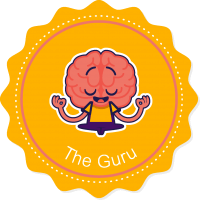Learning disabilities may be defined in practical, medical and legal terms. The common theme in all three definitions is that a learning disability is a disorder in one or more basic psychological processes that may manifest itself as an imperfect ability in certain areas of learning, such as reading, written expression, or mathematics.
Practical Definition
The term “learning disabilities”, sometimes referred to as specific learning disabilities, is an umbrella term that covers a range of neurologically based disorders in learning and various degrees of severity of such disorders. Predecessor terms include: minimal brain damage and minimal brain dysfunction.
Broadly speaking, these disorders involve difficulty in one or more, but not uniformly in all, basic psychological processes: (1) input (auditory and visual perception), (2) integration (sequencing, abstraction, and organization), (3) memory (working, short term, and long term memory), (4) output (expressive language), and (5) motor (fine and gross motor).
Learning disabilities vary from individual to individual and may present in a variety of ways. Learning disabilities may manifest as difficulty: (1) processing information by visual and auditory, means, which may impact upon reading, spelling, writing, and understanding or using language, (2) prioritizing, organizing, doing mathematics, and following instructions, (3) storing or retrieving information from short or long term memory, (4) using spoken language, and (5) clumsiness or difficulty with handwriting.
Learning disabilities are not emotional disturbances, intellectual disabilities, or sensory impairments. They are not caused by inadequate parenting or lack of educational opportunity.
Cognitive assessment, including psychoeducational or neuropsychological evaluation, is of critical importance in diagnosing a learning disability. Learning disabilities may be diagnosed by qualified school or educational psychologists, by clinical psychologists, and by clinical neuropsychologists who are trained and experienced in the assessment of learning disabilities.
Medical Definition
The draft Fifth Edition of the Diagnostic and Statistical Manual of Mental Disorders (DSM-V) contains a section for Neurodevelopmental Disorders, and, within that section, a category for Specific Learning Disorder. The Neurodevelopmental Disorders Section also contains categories for Communications Disorders and Motor Disorders. Specific Learning Disorder in draft DSM-V includes difficulties in reading, written expression, and mathematics.
DSM-IV-TR, which is currently in effect, includes: Reading Disorder, Mathematics Disorder, Disorder of Written Expression, and Learning Disorder Not Otherwise Specified (NOS).
Legal Definition
The Individuals with Disabilities Education Act (IDEA) provides that “specific learning disability” means “a disorder in 1 or more of the basic psychological processes involved in understanding or in using language, spoken or written, which disorder may manifest itself in the imperfect ability to listen, think, speak, read, write, spell, or do mathematical calculations.” Such term “includes such conditions as perceptual disabilities, brain injury, minimal brain dysfunction, dyslexia, and developmental aphasia.” Such term does not include “a learning problem that is primarily the result of visual, hearing, or motor disabilities, of intellectual disabilities, of emotional disturbance, or of environmental, cultural, or economic disadvantage.” 20 U.S.C Section 1401 (30).
The term “learning disabilities” is not expressly defined in the Americans with Disabilities Act (ADA) , but courts have referred to the IDEA definition in cases involving the ADA.



Good Read